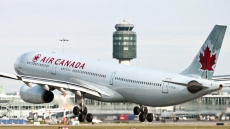The economic impact of the COVID-19 virus is difficult to estimate because the situation is rapidly changing and because shuttering large segments of the economy is unprecedented. It is even more difficult to gauge the implications for the global economy with the virus now spreading rapidly across Europe and the U.S. and it is unclear how long lockdowns will last.
In our estimates of the potential impact for the B.C. economy, two scenarios are considered. Both recognize that prior to the onset of the pandemic, growth in the provincial economy was already ebbing. Both also assume a global recession is imminent or already underway. Because B.C. is a small open economy that is strongly influenced by what happens in outside markets, the global setting is important.

The first scenario assumes:
the widespread lockdown and closing of “non-essential” B.C. businesses is in place least eight weeks
some business remain closed or operate at reduced capacity into the summer months
when bars and restaurants are initially permitted to open in the second half of 2020, new social-distancing guidelines will likely be in place
international travel will remain heavily restrained for five or six months, and that fears of a second wave of the virus will continue to limit travel for some time.
Under the first scenario, the provincial economy (real GDP) contracts by 7.3% in 2020. Although given the high degree of uncertainty, it may be preferable to think of the economy contracting in the 6% to 8% range.
The second scenario is similar to the first but foresees business interruption lasting longer and a more muted and slower rebound in output. It assumes:
the closure of bars, restaurants and many other consumer-facing service businesses lasts longer than in the first scenario and stringent restrictions on international travel remain in place through most of 2020. This results in even more lost output in B.C.’s tourism, hospitality and air transportation sectors
job losses are more widespread, more businesses go under, and economic malaise lasts longer
the North American and global recessions are somewhat deeper.
Under our second COVID-19 scenario, the provincial economy shrinks by more than 11% in 2020, well beyond anything B.C. has experienced in the last 70 years.
We expect that some prominent B.C. industries will suffer lasting damage as a result of global pandemic – including travel, aviation, the cruise ship industry, the meeting and convention business, and some other parts of the broad tourism sector.
Finally, it is possible we are too pessimistic (and we hope this is the case). The virus could be contained sooner than we envision and some. or even most. business activity may resume sooner than we believe. Governments could also do more to prevent businesses from going under during the crisis. But so far, we see little reason to incorporate these more favourable outcomes into our projections.



